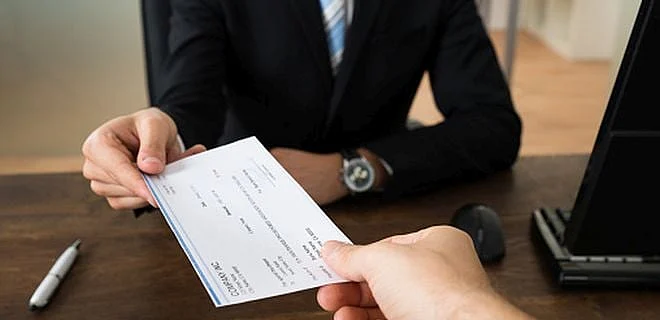Signed cheque
Do you often use cheques? Do you want to use cheques in the future? If yes, then you must have knowledge of the legal and financial aspects involved in it. A cheque is a powerful financial instrument through which exchange of money is facilitated. Before signing any cheque, you should know who you are giving the cheque to and what is its purpose? A signed cheque can sometimes be misused or filled for unintended transactions, causing huge financial losses to you. There are many small things which you must keep in mind which can help you avoid unnecessary problems.
Keep enough money in the account
It is very important to ensure that there are enough funds in your account to cover the amount of the cheque. Maintaining sufficient funds before issuing a cheque in India is essential to maintain financial credibility and avoid legal consequences. When a person issues a cheque without sufficient funds in his bank account, it results in a bounced cheque. Such a situation may lead to legal consequences.
Write the date correctly
Make sure the date on the cheque is correct and matches the day you are issuing it. This is most important. This saves you from a lot of confusion and ensures you know when the cheque will be valid for encashment. Wrong date on the cheque can cause its rejection by the bank. Apart from this it is also important to maintain accurate financial records.
Name on the cheque
Clearly write the name of the person or business to whom you are issuing the cheque. The correctly written name ensures that the cheque will reach the right place. Errors in name writing may delay the cheque clearing or it may even get rejected by the bank.
Use Permanent Ink
To avoid tampering with the cheque, use permanent ink, so that it cannot be mutilated or changed later. With this you can also avoid fraud.
Sign a cheque
Sign the cheque using your full name where indicated. Make sure that your signature matches the one you have given in the bank, in case of mismatch the bank may reject your cheque and this may waste your time and delay the payment.
Keep cheque number with you
Take note of the cheque number and note it in your records. It is important to make sure you write it down in a safe place. Whenever there is any dispute, you can always use this cheque number to clear doubts or to give it to the bank for verification.
Avoid post-dating
Avoid post-dating the cheque as the bank may not accept it. The date plays an important role in paying the cheque to the bank. You can enter the date when you want the funds to be deducted from your account. If you have entered the wrong date, month or year, your cheque will most likely be returned.
Never issue a blank cheque
Never issue a blank cheque as it can be filled with any amount. Doing this can be extremely risky for you.
Safety and security
Keep your cheque book in a safe place to prevent it from being lost or stolen. Without your signature your cheque has no value.









